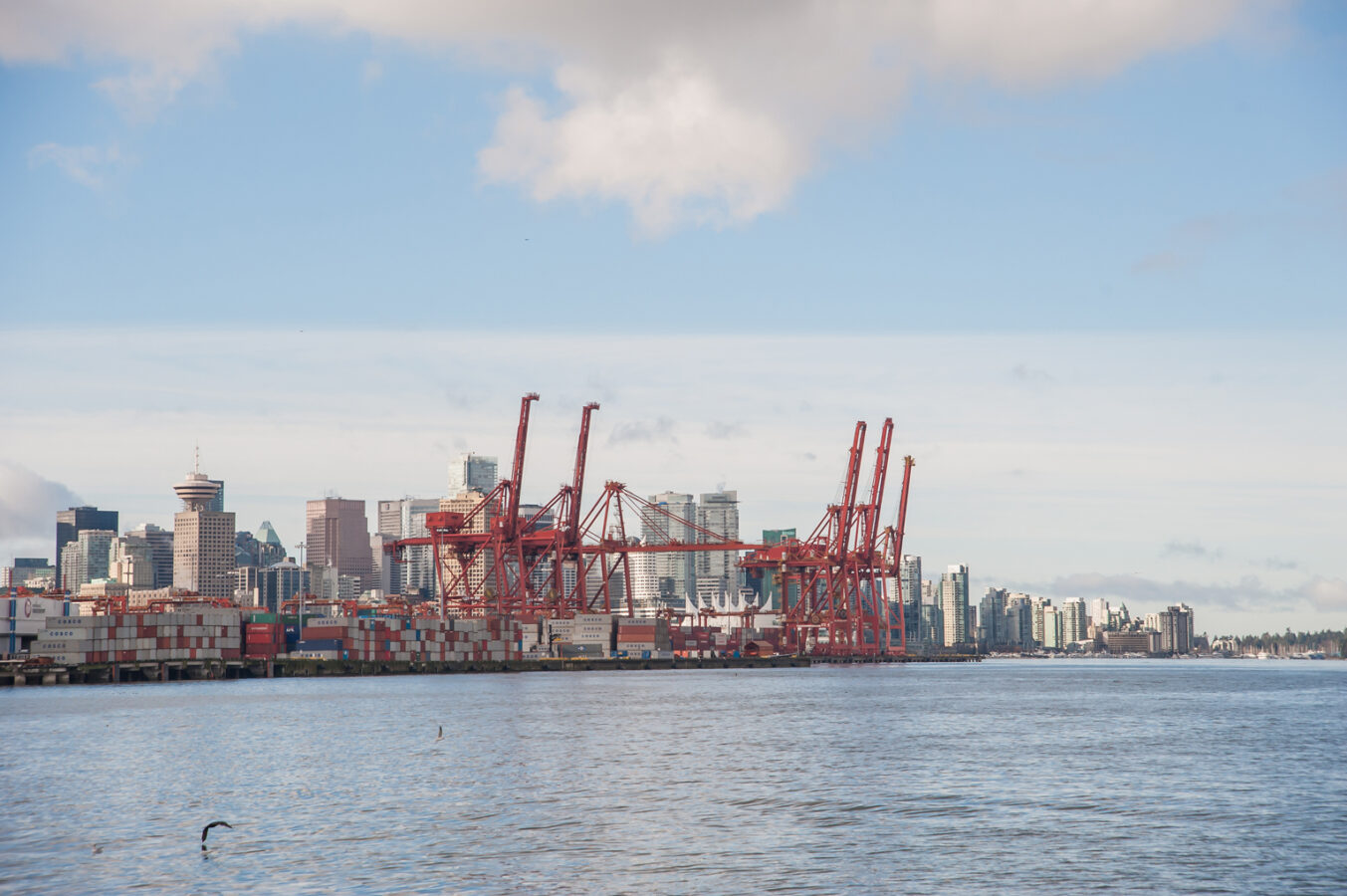
Industry News
News
B.C. port labour dispute ends as workers accept new deal
August 8, 2023 By CFI Staff
 Photo courtesy Vancouver Fraser Port Authority.
Photo courtesy Vancouver Fraser Port Authority. Members of the International Longshore and Warehouse Union (ILWU) Canada have voted in favour of ratifying a negotiated agreement with the British Columbia Maritime Employers Association (BCMEA), ending the on-again, off-again strike that has paralyzed industries and supply chains across Canada.
“The results of the ratification vote for the tentative agreement show 74.66 per cent in favour of accepting the terms of settlement,” ILWU president Rob Ashton said in a statement.
The BCMEA said the agreement was achieved, with the assistance of the Canada Industrial Relations Board, after five months of negotiations, conciliation and mediation, and five weeks of labour instability at B.C.’s ports.
The renewed collective agreement includes increases in wages, benefits and training that recognizes the skills and efforts of B.C.’s waterfront workforce, while providing certainty and stability for the future of Canada’s West Coast ports, the BCMEA said.
Alberta’s Minister of Transportation and Economic Corridors Devin Dreeshen issued this statement following the port strike resolution:
“I am pleased that the ILWU and the BCMEA have reached an agreement. This decision puts an end to the disruptions and uncertainty that have been impacting supply chains in Alberta and across the country since strike action was first initiated July 1, 2023.
“As a land-locked province, Alberta relies on the safe, dependable movement of goods to and from British Columbia ports. Now that an agreement has been reached, work can fully resume at the B.C. ports, allowing Alberta’s producers, exporters and small companies to get back to business.
“We appreciate both sides working to resolve this issue and are pleased that work is again underway, helping to restore the critical supply chains and the economies of Alberta and Canada, and our country’s reputation as a reliable trading partner.
“We urge the federal government to bring forward mechanisms that provide more stability and predictability in the segments of Canada’s supply chain within its jurisdiction. Class 1 rail, ports, and airports are critical pieces of infrastructure and we cannot afford these sorts of disruptions to our province.”
Print this page